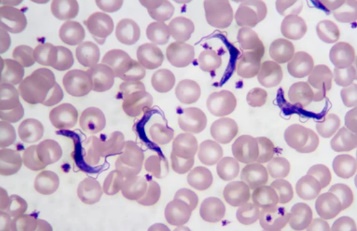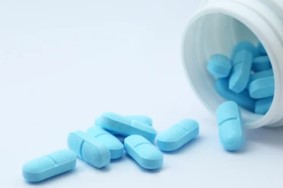
African Trypanosomiasis, categorically called sleeping sickness, is a disease caused due to an infection, as it is formulated due to multiplying parasitic infections from a genus called Trypanosoma, and the species is England brucei. It is majorly transmitted through bites from tsetse flies which are relatives of the species called Glossina. African trypanosomiasis therapies are another aspect of our company, and we specialize in them, along with other services to complement your research, such as conducting in-depth rather through research on vaccines formulation.
Overview of African Trypanosomiasis
As said before African trypanosomiasis or sleeping sickness is a form of parasitic disease caused by sleeping sickness Trypanosoma species that are spread by tsetse flies. The literature indicates mostly women are victims of the disease and usually the incidence is highly prevalent in the non urbanized parts of the sub Saharan Africa and the total population at risk is about seventy million. In 2023 WHO published an estimate of nearly one thousand five hundred new cases which is a sharp decline owing to the control strategies in place to prevent its spread.
 Fig.1 Geographical distribution of reported infections of human African trypanosomiasis. (Pérez-Molina JA and Molina I., 2018)
Fig.1 Geographical distribution of reported infections of human African trypanosomiasis. (Pérez-Molina JA and Molina I., 2018)
Pathogenesis of African Trypanosomiasis
The pathogenesis of African trypanosomiasis begins with an acute phase where parasitic load is high with mild symptoms then turning into a chronic condition where the parasites are largely present in the heart tissue. The parasites multiply within the blood stream in the hemolymphatic stage resulting in symptoms of fever, swollen lymph nodes while also undergoing immune evasion through antigenic variation. In the absence of any treatment, the disease enters a neurological stage where the parasites penetrate the central nervous system resulting in a range of severe symptoms such as sleep disturbances, severe confusions or even a comatose state.
 Fig.2 Role of neutrophils in Trypanosoma Cruzi infection. (de Andrade, M.F., et al., 2018)
Fig.2 Role of neutrophils in Trypanosoma Cruzi infection. (de Andrade, M.F., et al., 2018)
Drug Targets of African Trypanosomiasis
- Ergosterol Pathway and CYP51 Inhibitors: The parasite owes its survival to the activity of sterol 14-alpha demethylase (CYP51) enzyme. While CYP51 inhibitory effect has been exhibited by anti-fungal triazole derivatives, such as ravuconazole and posaconazole, their application in long-term clinical settings has resulted inefficacy.
- Proteasome Inhibitors: GNF6702 and GSK3494245 are inhibitors acting towards a proteasome, which is critically required for degradation of proteins in the parasite. Treatment with GNF6702 has previously been effective for kinetoplast infections including Chagas infection.
- Tc80 Proteinase and Peptides: The procollagenase enzyme (Tc80) is produced secreted by the parasite and is essential for its invasion into the cell. Peptidyl nitrile and peptidyl ketobenzothiazole which are paralogous competitive inhibitors ofTc80 have been already screened.
- Cysteine Peptidase and K777: K777 a vinyl sulfone derivative has been directed towards cruzipain which is a lysosomal cysteine peptidase. It has been possible to observe however that K777 has crucified mouse livepectins with in vivo reduction of parasite induced damage to the cardiac tissues.
- Carbonic Anhydrase (TcCA) Inhibitors: Taking part in ionic exchange and hence growth, TcCA is important for the parasite in general. A number of inhibitors in particular sulfonamides, thiols and hydroxamptonate have been discovered which exhibit in vitro trypanocidal effect.
Vaccine Development of African Trypanosomiasis
Considering the enduring challenge posed by parasite persistence and the need for novel immune responses, vaccine initiatives have been designed to be both protective and curative in so far as they aim at lowering parasite load and slowing disease progression.
|
Vaccine Type |
Immunogen/Antigen |
Adjuvant |
Immune Response |
| Subunit Vaccine |
Cruzipain (Cz) |
CpG-ODN, GM-CSF, MALP-2 |
Induces strong Th1 response, IgG2a antibodies, CTL activity |
| DNA Vaccine |
Tc52, Tc24, Tc80 |
CpG-ODN, c-di-AMP |
Promotes Th1/Th17 immune response, polyfunctional T cells (CD4+ IFN-γ+ TNF-α+) |
| Multicomponent Vaccine |
Cz, Tc52, Tc24 |
None or combined adjuvants |
Enhances immune response breadth, antigen-specific IgG and IgA response |
| Genetic Vaccine |
ASP-2, TS, TSA-1 |
CpG-ODN, IL-15 |
Strong CD8+ T cell response, long-term memory T cell response |
| Therapeutic Vaccine |
TSA-1, Tc24, ASP-2 |
MPLA, E6020 |
Enhanced anti-inflammatory response, reduced myocardial fibrosis and inflammation |
Our Services
Our firm has the capacity to assist clients in developing strategies for the creation of inventions that would provide an effective vaccine against African trypanosomiasis as well as recombinant therapies. Our group of experts including chemists, immunologists, and pharmacologists utilizes cutting-edge technologies along with proven integrative methods to enhance the performance of the project significantly.
In the development of a therapy against African trypanosomiasis, our emphasis predominantly lies in finding and developing new targeting agents against virulence factors. Additionally, our offerings are designed to provide assistance in evaluation, optimization, and advancement of therapeutic agents.
If you are interested in our services, please don't hesitate to contact us.
References
- Pérez-Molina JA and Molina I. "Chagas disease." Lancet. (2018). 391(10115): p. 82-94.
- de Andrade, M.F., et al., "Involvement of neutrophils in Chagas disease pathology." Parasite Immunol, (2018). 40(12): p. e12593.
- da Costa, K.M., et al., "Trypanosoma cruzi trans-Sialidase as a Potential Vaccine Target Against Chagas Disease." Front Cell Infect Microbiol, (2021). 11: p. 768450.
All of our services and products are intended for preclinical research use
only and cannot be used to diagnose, treat or manage patients.



 Fig.1 Geographical distribution of reported infections of human African trypanosomiasis. (Pérez-Molina JA and Molina I., 2018)
Fig.1 Geographical distribution of reported infections of human African trypanosomiasis. (Pérez-Molina JA and Molina I., 2018) Fig.2 Role of neutrophils in Trypanosoma Cruzi infection. (de Andrade, M.F., et al., 2018)
Fig.2 Role of neutrophils in Trypanosoma Cruzi infection. (de Andrade, M.F., et al., 2018)


